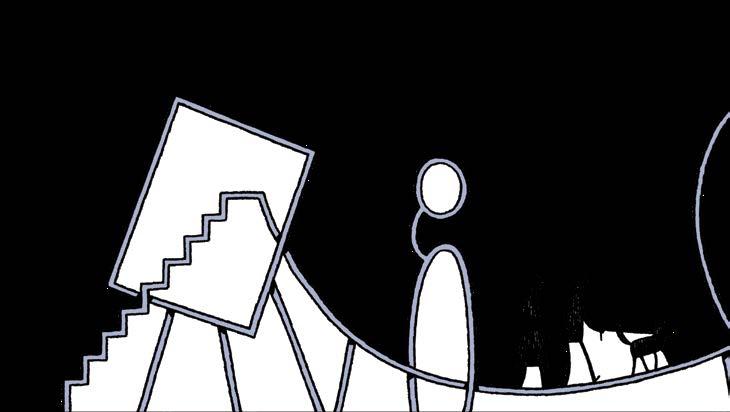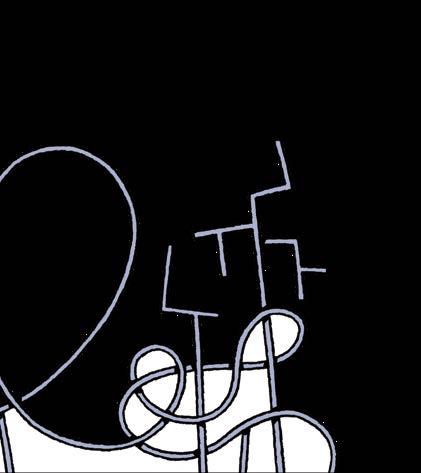
3 minute read
Film: Downton Abbey
by The Oldie
Arts

Advertisement
FILM HARRY MOUNT DOWNTON ABBEY: A NEW ERA (PG)
When Are You Being Served? was turned into a film in 1977, the cast decamped to the downmarket Spanish resort of Costa Plonka. As Roger Lewis points out on page 15, the comedy didn’t quite survive the journey to the big screen – as it didn’t in the films of Porridge and Morecambe and Wise.
For the second Downton Abbey film, the cast descends on the much posher Villa des Colombes on the French Riviera in the late 1920s. In one of the movie’s many mini-plots, the Dowager Countess of Grantham (Maggie Smith, always the best actress in Downton, injecting even the tiniest gesture with knowing, comic grace) has unexpectedly inherited the villa from a French friend of her youth. Why? Did she have a long-ago affair with him? And is Lord Grantham (a buff Hugh Bonneville) the illegitimate product of the union?
At the same time, another big plot is being swiftly constructed back at Downton. To pay for the house’s leaky roof, the Crawleys have allowed a silent movie to be filmed at the Abbey. Cue farcical scenes as the Crawleys and their servants blunder onto the set mid-shot and end up appearing in the rushes.
Julian Fellowes sets two other hares running on the silent film set. Dominic West plays Guy Dexter, a charming, ageing silent-movie star who dreads the arrival of talkies – and has been keeping his homosexuality quiet. His co-star Myrna Dalgleish (a roguish comic turn by Laura Haddock) is even more terrified by the talkies: she has the looks of an angel with the voice of an East End docker.
It’s this cobweb of mini-plots that keeps the film – like the TV series –

Downton Abbaye-sur-Riviera: the Crawleys visit the Villa des Colombes whirring along. Despite being two hours long, it just zips by. Downton Abbey – unlike Are You Being Served? in Costa Plonka – can flourish in foreign parts, thanks to Fellowes’s constant supply of plots. And the upstairs-downstairs dynamic works happily in any country.
We are now so familiar with the cast – upstairs and downstairs – that we get the warm glow of recognition on seeing them again, wherever they are. What’s more, Fellowes doesn’t have to waste time with character explanation because we all know who they are already.
We’ve also got used to the creakier actors delivering some pretty ponderous lines. Good old Mr Carson the butler (Jim Carter) gets to huff and puff in his stagy, music-hall way.
Carson can rage about the French: ‘They better be warned: the British are coming.’ And he gets to be rude about film stars: ‘This is absurd. Actors where the King of England once sat!’
But even the ropy bits of Downton are strangely comforting, particularly the historical-plot-exposition parts. When they get to the South of France, Lord Grantham first explains that the area has been fashionable ever since Lord Brougham, Lord High Chancellor, visited in the 1830s. And now his daughter Lady Edith (Laura Carmichael) is muscling in on the historical-exposition act, too. She goes on to explain how people are now flooding to the South of France, not least thanks to a fashionable young American writer called F Scott Fitzgerald and his wife, Zelda. It’s easy to mock Downton Abbey. But it’s also easy to see why it’s so successful. Fellowes sets all these plots up – and quickly resolves them, practically always happily – in a way that keeps you constantly engaged and never bored. In 1961, Evelyn Waugh said of PG Wodehouse, ‘Mr Wodehouse’s idyllic world can never stale. He will continue to release future generations from captivity that may be more irksome than our own. He has made a world for us to live in and delight in.’ Fellowes isn’t in Wodehouse’s league – nor would he claim to be. But he pulls off the same trick – of allowing us to escape into a more delightful world. This film makes for triple escapism: not only are you transported to Downton, but you are also taken to the South of France and the early days of Hollywood. In a world of dark, grim, plot-free, self-indulgent films, a trip to Downton is a quickfire blast of sunny innocence under a clear blue, Mediterranean sky.










